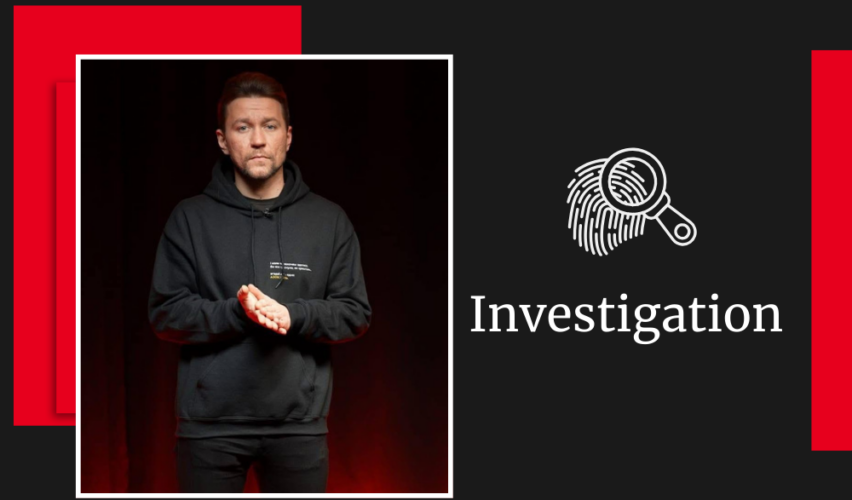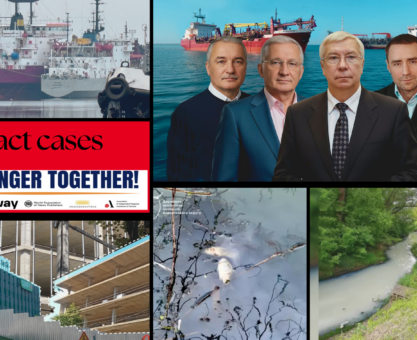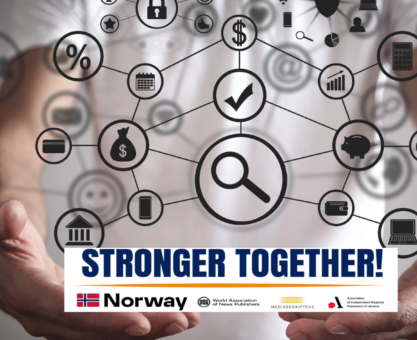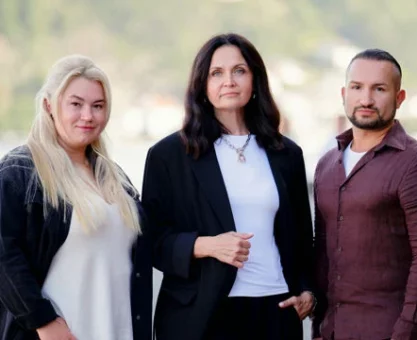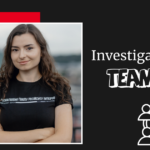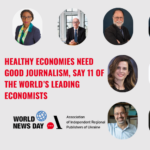As part of the «Stronger Together: Transparency and the Fight Against Corruption» program, we continue our series of stories about mentors and their teams — regional media outlets that are developing the field of investigative journalism.
Meet Maksym Opanasenko, editor at Bihus.Info, with 16 years of investigative experience.
«This project is extremely important, especially against the backdrop of the suspension of several grant programs. On the other hand, we are witnessing a new wave of pressure from pro-government forces.
It is in the regions where reconstruction is taking place, where businesses are relocating, and where regions are beginning to play a key role in the country’s political and economic life. That is exactly where media oversight and accountability of the authorities are most needed.
Therefore, this program supporting independent media is both timely and well-balanced. From what I observe, the participants are either young yet already impressive teams known beyond their regions, or experienced and highly professional ones. I hope this initiative will help them preserve what they have already achieved and perhaps enable them to realize some new ideas as well».
Poltava Wave: Striving to Establish a Dedicated Investigations Unit
Since its founding in 2021, the media outlet has been producing materials with elements of investigations and analysis. Later, reporting from the frontlines and de-occupied regions temporarily shifted the focus of their work. Last year, during a strategy session, the team decided to return to investigative journalism — this time with a more targeted and in-depth approach.
«Despite the difficult conditions for independent regional journalism, we have managed to build a sustainable format for analytical and investigative work. Our key topics today include abuses by local authorities, land and budget manipulations, violations in the education sector, non-transparent tenders, questionable actions of officials and deputies, as well as high-profile issues at the intersection of war and corruption. We work with open data sources, build a network of informants, and actively use OSINT tools», — shares his experience Vitalii Ulybin, head of the media outlet.
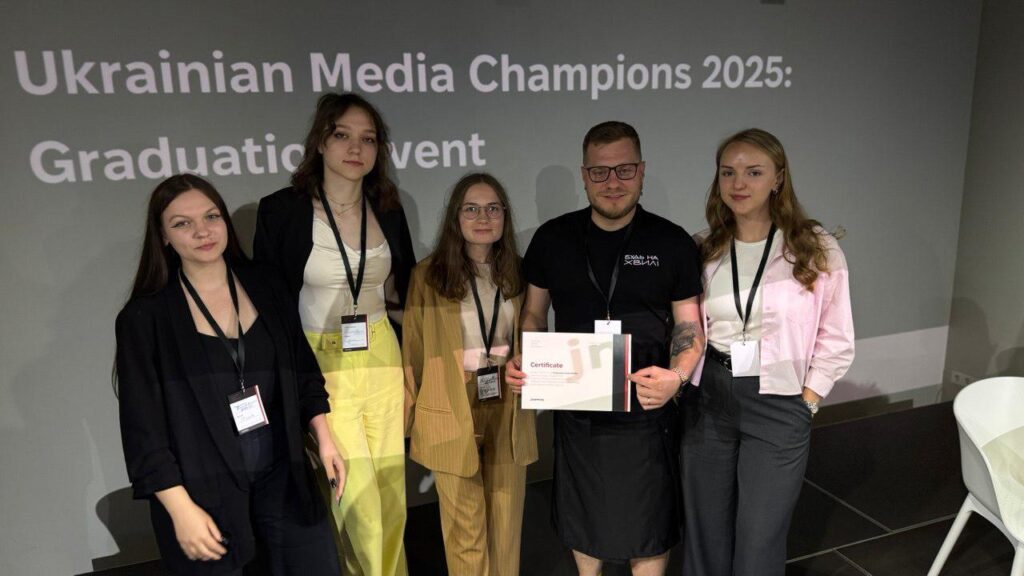
What motivated the team to apply for the Stronger Together project? They say they had long been looking for partners interested specifically in this area, since investigative journalism has so far remained their weakest format compared to others they produce.
«Nevertheless, we are actively growing and developing. So when we saw the opportunity to strengthen our systemic work in investigations, to build an internal structure, and to receive support from mentors and like-minded colleagues, we did not hesitate. We applied, crossed our fingers, and waited for a response. We were very glad that our partners believed in us.
For us, this is not just a chance to strengthen the team, but also an opportunity to become part of the investigative journalism community that unites knowledge, experience, and resources. Of course, we also want to build a sustainable investigative unit — independent and with a solid working model.
That is why the experience of mentors and colleagues within the project is one of the greatest values for us. We are learning to work from scratch — in our view, this is not a drawback but an advantage, because we immediately adopt the best and most modern practices and methods. Stronger Together зкщоусе is exactly the kind of project that can help. More precisely, it is already helping — we can see this in ourselves and in the results of our work», — says Vitalii Ulybin.
And there are already results. Recently, Poltava Wave published its first investigation produced within the framework of the project — «Fresh Graves in a Closed Cemetery: How the Shadow Death Business Thrives in Poltava». Before that, they had also released other materials that sparked public resonance. For example, «An Offer Without Demand: How Poltava’s Pedagogical University Falsifies the Admission Campaign» went viral nationwide, and the newsroom is preparing a follow-up. Another notable case concerned money laundering — «Scandal at the Landfill: How a Poltava Company Received Over Four Million Without Tenders» — which will also have a continuation.
However, as Vitalii Ulybin emphasizes, producing complex investigations requires time, resources, and people. Without stable funding, the work is always partly driven by enthusiasm — and that enthusiasm tends to fade, as people burn out without sufficient motivation.
«There is a severe lack of personnel. Due to the shortage of money in the industry, many professionals have left journalism, switching to more ‘profitable’ positions in PR and communications, or even changing fields entirely. Many have moved to bigger cities. We train our own journalists, organize media schools, but this is a long game. And meanwhile, our reporters are universal fighters — between investigations, they also have to write news and produce reports. We need more people so that the investigations desk can be independent and autonomous», — says Ulybin.
In addition, when tackling serious topics, it is also crucial to have professional legal support.
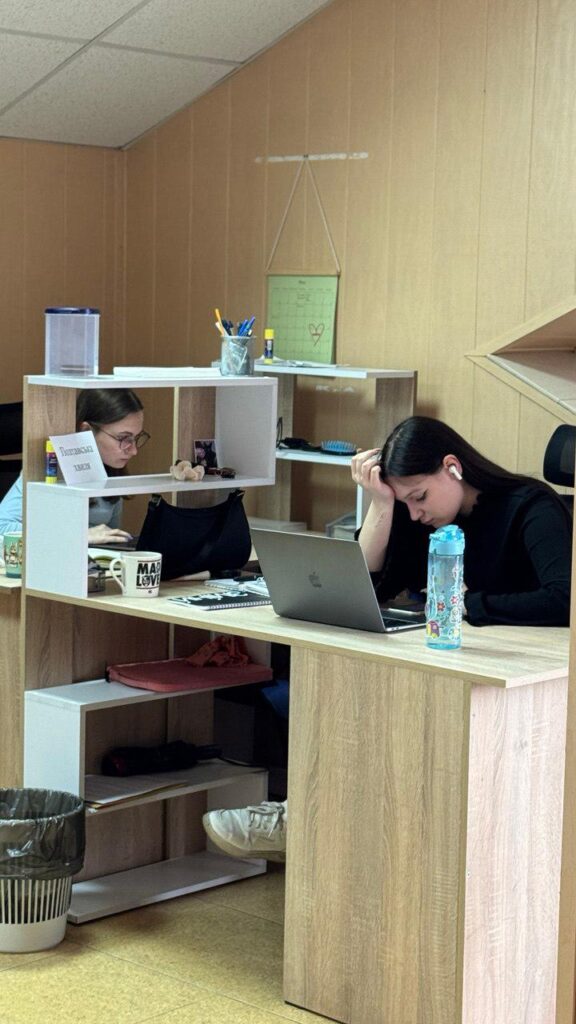
«We are very glad that the Stronger Together project includes pre-publication legal review. This is significant support for us», — emphasizes Vitalii Ulybin.
Looking ahead, the newsroom aims to develop investigations as a separate direction — with a clear structure, plans, dedicated staff, and defined responsibilities. They plan to strengthen the team by hiring two more journalists who will focus exclusively on investigations. The outlet also aspires to expand into the format of video investigations.
«We wish all participants of the Stronger Together project bold topics, honest journalism, and a sense of support. We are always open to collaborations with media outlets whose values align with ours», — says Vitalii Ulybin, inviting colleagues to cooperate.
Mentorship as an Added Bonus for «18000»
The media outlet 18000 has been working with investigations since its founding in 2019. At that time, however, they were limited to text formats. In 2021, the team won a competition organized by Suspilne Cherkasy and produced several episodes of the program «Lakmus» on their request.
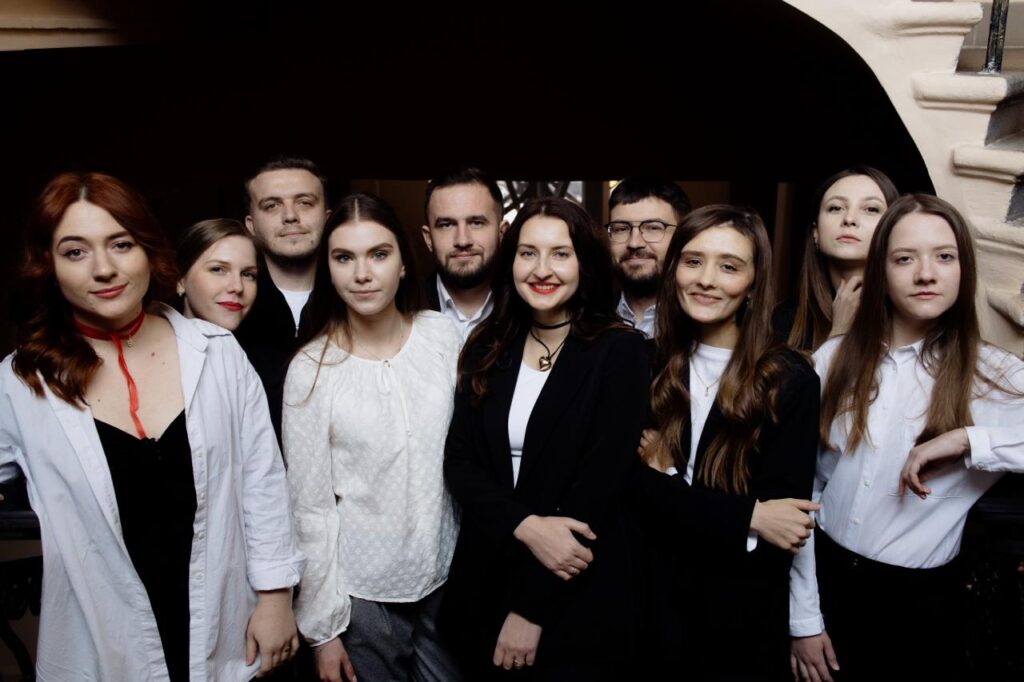
«That was actually our first experience working with investigations in video format. And it showed that we do have an audience that previously did not consume our investigations because they were only in text form. Since 2023, we have been working in parallel with both text and video. Most often, our focus is on anti-corruption investigations — abuses in tenders and auctions, theft of community property and land», — says editor-in-chief Yelena Shchepak.
Despite having experience with complex topics, the team seeks to grow further and is looking for opportunities to strengthen their skills. That is why, Shchepak explains, mentorship is an especially important form of support for them. Having a mentor in the project — Maksym Opanasenko — is of exceptional value.
«We had worked with Maksym before, and it was wonderful. He helps us see our story from the outside and highlight the blind spots that may be unclear to an audience not as deeply immersed in the topic as we are. Maksym also constantly impresses us with his level of empathy, as he responds to our requests almost any time of day — though, of course, we try not to abuse that. We also appreciate the lecture component, with well-chosen topics for the project’s workshops. A special thanks for the opportunity to get acquainted with the work of media in Norway, explore their approaches to monetization, and establish new contacts», — says Yelena.
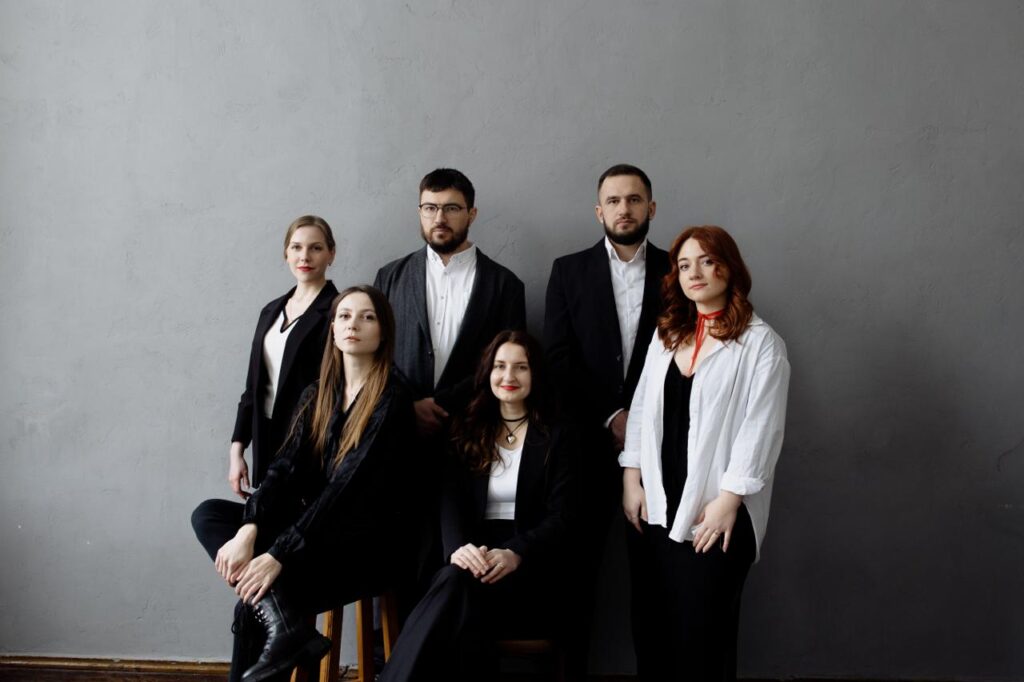
The newsroom’s portfolio includes many strong stories that expose the truth. For example, «Buy at Any Price: Who Makes Millions on Medical Equipment Procurement in Cherkasy» — an investigation by Artur Chemirys about equipment purchased by a local clinic. As «18000» uncovered, under the guise of Polish equipment, the clinic actually bought Chinese devices that cost dozens of times less on the market. As a result of the video, responsible officials were dismissed, and the city council blocked the payment of 30 million hryvnias that was supposed to go toward the controversial purchase.
Another investigation, «She Earned It, He Took It from Mom: The Secrets of a Cherkasy Official’s Wealth», focused on the assets of city council secretary Yurii Trenkin. He and his wife enjoy luxury and branded goods, yet his official declarations showed nothing close to those values. To conceal ownership, Trenkin registered property under his mother and even his driver. The video gained a record 55,000 views on YouTube, and the official was forced to publicly explain through his press service that the luxury items were allegedly counterfeits.
Within the Stronger Together project, the team also published the story «A Scheme Worth Tens of Millions or Bondarenko’s Genius? The Mayor Offered the Community a Land Deal with an Open Ending». Many other important and compelling investigations can be found on the media outlet’s website. It is precisely thanks to such work that the newsroom is able to influence change in its region.
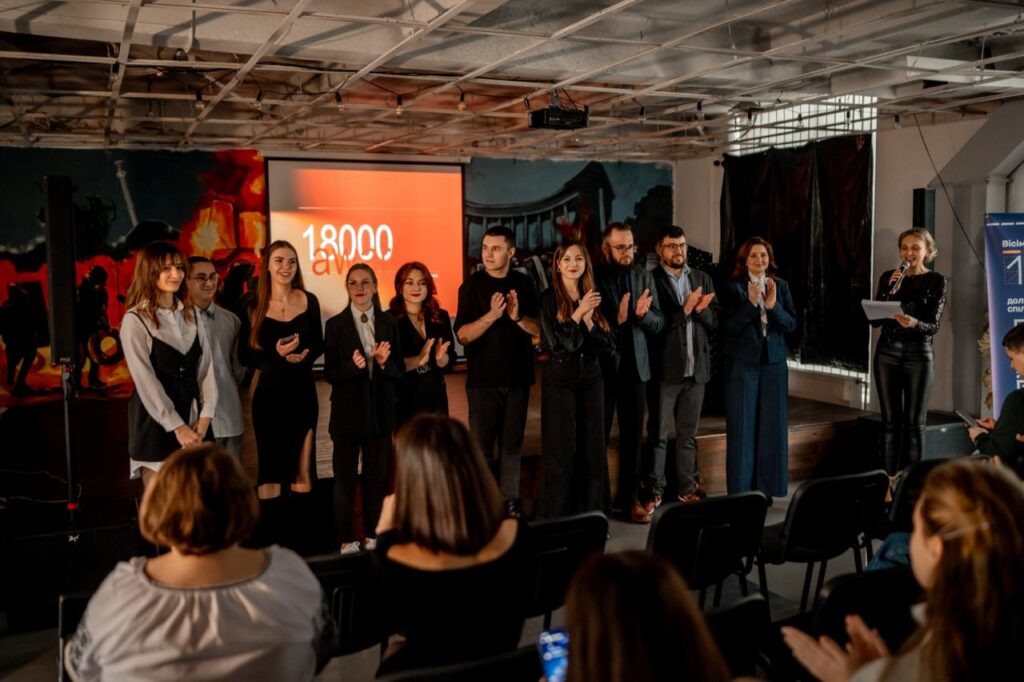
The main challenges for journalists today are security, financial stability, and human resources, says editor-in-chief Yelena Shchepak. Because of their work, the newsroom constantly faces moral pressure. The most recent case occurred in July, when investigative journalist Iryna Maliukova from 18000 was summoned for questioning over a story published a year earlier. As it turned out, the subject of the investigation, a local judge, filed a police complaint alleging that the newsroom was allegedly interfering with his work.
The financial factor also plays a major role. Despite diversifying its income, 18000 — like most independent Ukrainian media outlets — remains dependent on donor funding. The suspension of USAID support hit the newsroom hard, particularly in terms of long-term planning. Nevertheless, the team is working to develop alternative funding sources, including its donor community — the Donors’ Club, which currently has 219 members.
Another challenge is the lack of staff.
«For over a year, our newsroom has wanted to expand the investigations desk but has been unable to do so due to a shortage of qualified personnel in the region. We considered bringing in people from other regions and even held some preliminary discussions, but it’s not that simple. Despite these challenges, we plan to increase the number of investigations as well as diversify our topics — in particular, producing more stories on social issues. We hope that participation in the project will strengthen our institutional resilience and professionalism in the field of investigations. And mentorship will help us create higher-quality stories», — concludes Yelena Shchepak.
Zaporizhzhia Center for Investigations
This team has around eight years of experience in investigative journalism, and its mission is closely tied to investigations.
«The areas of our work are quite diverse — land, budgets, local environmental issues, some construction, and tenders. When the full-scale invasion began, we wrote extensively about local collaborators and russian disinformation. Later, it became clear that our audience was less and less interested in what was happening on the other side of the frontline, so we returned to more familiar topics. Added to these were security-related issues — all types of shelters and coverage of the city’s reconstruction processes», — says Serhii Sydorov, the head of the media outlet.
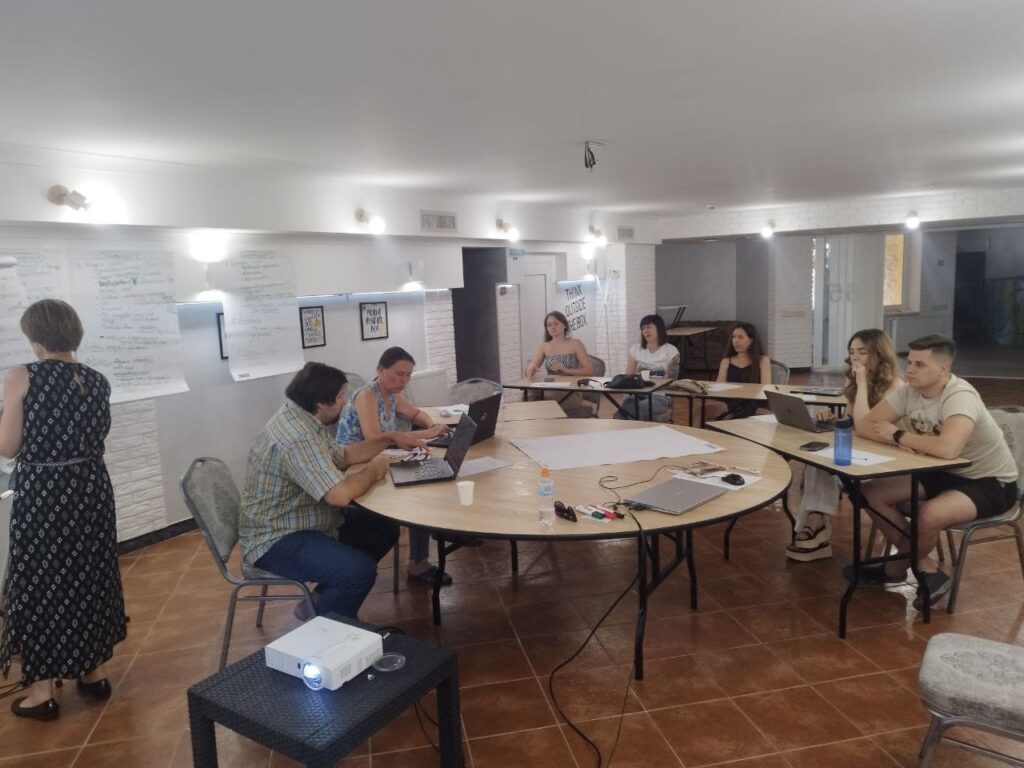
In fact, the Zaporizhzhia Center for Investigative Journalism is virtually the only team in the city that consistently produces investigative content, notes Sydorov. Over the years, the team has accumulated considerable expertise, as well as a clear understanding of what interests their audience and what the people of Zaporizhzhia need. The best proof of this is their social media platforms, which continue to demonstrate steady growth.
Given their extensive experience, the outlet has many successful cases to be proud of. Thanks to an investigation into the undervaluation of land prices during sales, they managed to stop the sale, and the head of the land department spent several years on trial. A series of stories about the construction of playgrounds in Zaporizhzhia — marked by numerous violations of standards and inflated cost estimates — sparked significant public outcry. According to the editor, a criminal case has now been opened on these facts.
Within the Stronger Together project, they recently published the piece «Shredinger’s Contractor and the Bureaucratic Vibe in Zaporizhzhia», which examines an official who, over the past three years, somehow managed to rotate through four different positions within the city hall system.
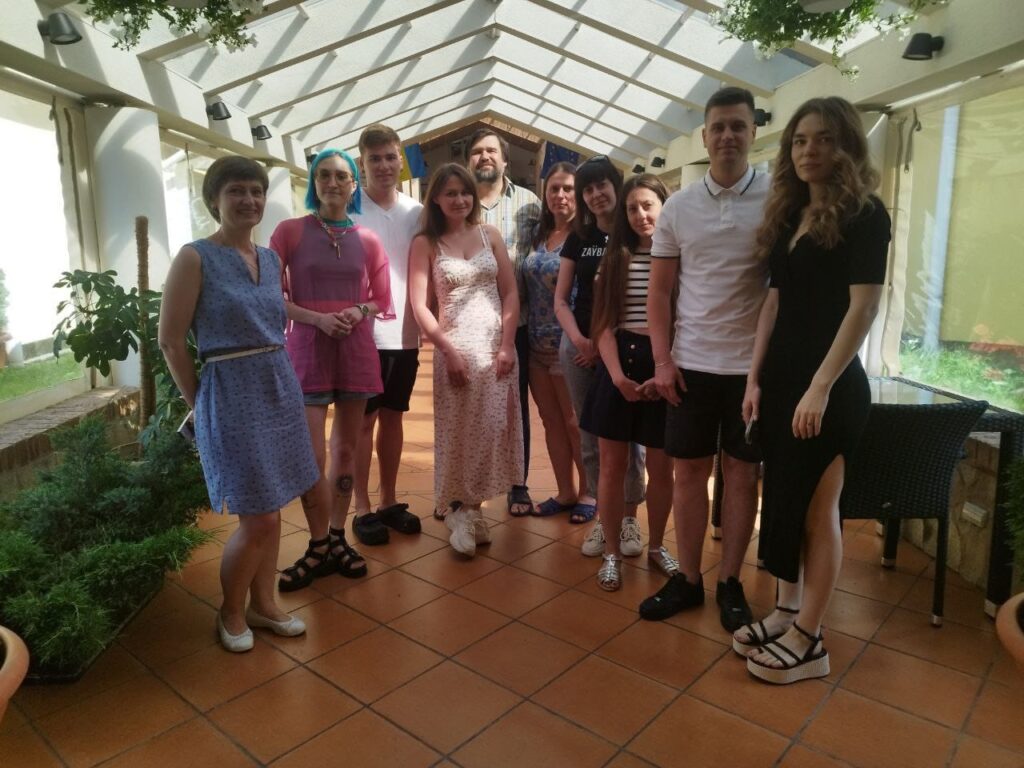
«We don’t have enough people. We need a full-time cameraman as well as another journalist. We want to start commissioning professional technical expertise to test our hypotheses. We also plan to purchase some specialized measuring equipment», — Serhii briefly shares the team’s plans. — «Because of the shutdown of the U.S. support program, we faced significant downsizing. In some ways, we are now learning to work from scratch, with a much smaller team, which feels a bit like going back to the old days. However, I believe we will manage — through joint efforts, inspired by the experience of colleagues and with the support of our partners. After all, we are stronger together!»
Read also:
- Investigations without compromise. Meet Alisa Yurchenko’s team in Stronger Together
- Unafraid of сhallenges and experiments: meet Oleksandra Gubytska’s team in Stronger Together
- From Kherson to Chernihiv: regional media launch investigative journalism with the Stronger Together project
***
The program Stronger Together: Media and Democracy is implemented by the World Association of News Publishers (WAN-IFRA) in partnership with the Association «Independent Regional Press Publishers of Ukraine» (AIRPPU) and the Norwegian Media Businesses’ Association (MBL) — with the support of Norway.

